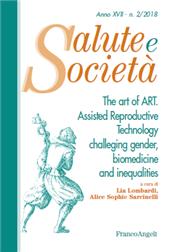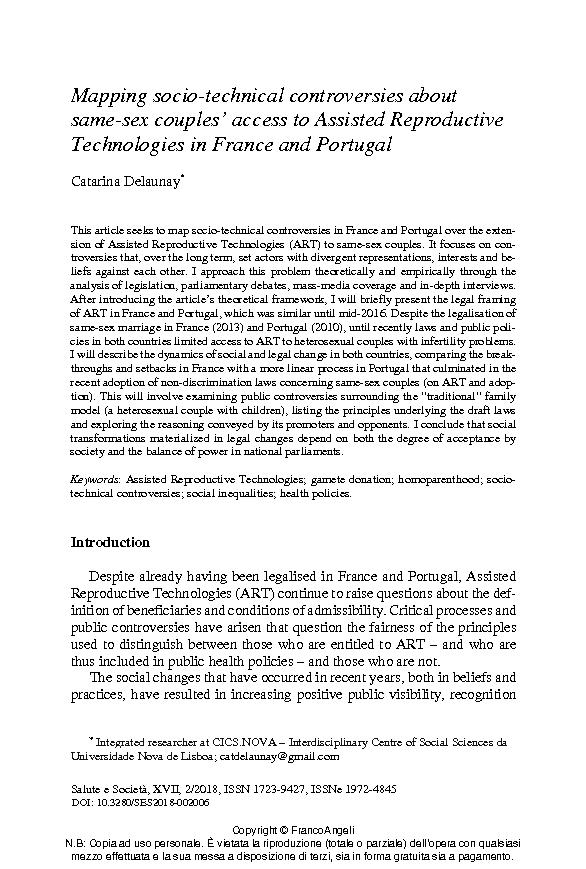Mapping socio-technical controversies about same-sex couples' access to Assisted Reproductive Technologies in France and Portugal
72-89 p.
This article seeks to map socio-technical controversies in France and Portugal over the extension of Assisted Reproductive Technologies (ART) to same-sex couples. It focuses on controversies that, over the long term, set actors with divergent representations, interests and beliefs against each other. I approach this problem theoretically and empirically through the analysis of legislation, parliamentary debates, mass-media coverage and in-depth interviews. After introducing the article's theoretical framework, I will briefly present the legal framing of ART in France and Portugal, which was similar until mid-2016. Despite the legalisation of same-sex marriage in France (2013) and Portugal (2010), until recently laws and public policies in both countries limited access to ART to heterosexual couples with infertility problems.
I will describe the dynamics of social and legal change in both countries, comparing the breakthroughs and setbacks in France with a more linear process in Portugal that culminated in the recent adoption of non-discrimination laws concerning same-sex couples (on ART and adoption). This will involve examining public controversies surrounding the "traditional" family model (a heterosexual couple with children), listing the principles un-derlying the draft laws and exploring the reasoning conveyed by its promoters and opponents. I conclude that social transformations materialized in legal changes depend on both the degree of acceptance by society and the balance of power in national parliaments. [Publishers' text].
Fa parte di
Salute e società : XVII, 2, 2018-
Articoli dello stesso fascicolo (disponibili singolarmente)
-
Informazioni
Codice DOI: 10.3280/SES2018-002006
ISSN: 1972-4845
PAROLE CHIAVE
- Assisted Reproductive Technologies, gamete donation, homoparenthood, socio-technical controversies, social inequalities, health policies



